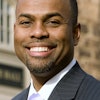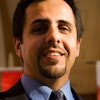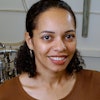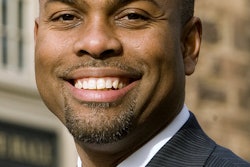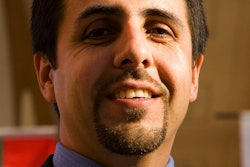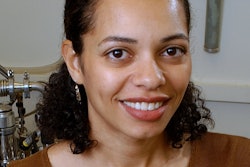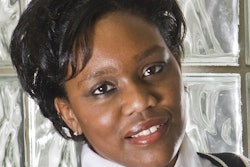Goodwin Liu jokingly refers to his academic foray into medicine as “the path of least resistance.” After all, both his parents were doctors. While they never pressured him to follow in their footsteps, he didn’t consider doing anything else. So he diligently studied biology and the sciences as an undergraduate, while pursuing politics, public education and social issues as side interests. Until he became a Rhodes Scholar.
At Oxford University, he studied philosophy, which he considers a bridge between science and law.
And one summer, he worked as an intern for an attorney who practiced education law.
Liu was inspired to go to law school, not medical school. And in another epiphany, he realized he wanted to teach at a university, where he could research and write as much as he wanted.
“In academia, you’re your own boss,” he says. “You’re defining your own agenda without having to work for the clients.”
However, he quickly adds that the two years he spent as an appellate litigator for a Washington, D.C., law firm was valuable in showing him how private practice works. He was also a law clerk for U.S. Supreme Court Justice Ruth Bader Ginsburg in 2000.
“The firm knew my ambitions all along,” he says. “They were very supportive of my academic leanings.”
Currently, he is co-director of the University of California-Berkeley law school’s Chief Justice Earl Warren Institute for Race, Ethnicity and Diversity, which launched in 2005. His expertise is in constitutional law, education policy, civil rights and the Supreme Court. Since joining the Berkeley faculty in 2003, he has taught courses such as fundamental rights, constitutional law and educational law and policy.
Liu encourages young scholars “to be true to what you’re interested in.”
“There’s a point at which your passion becomes more than just a hobby,” he says. “If you do the work you care most about, that’s where you’ll find true satisfaction. You simply won’t find passion and intellectual honesty in an area you don’t care about.”
The main challenge he has faced in academic life has been balancing the many demands on his time.
“Students ask for a lot of time, and it’s understandable because they can relate a little better to the younger faculty than they do the older faculty,” he says. “But on the other hand, I have to keep up my scholarship.”
He was drawn to Berkeley largely because of its interdisciplinary strengths in social science, education and public policy. And having grown up in the California capital of Sacramento, he was well aware of the state’s diversity as well as its reputation for social and political pioneering for racial justice. “It’s been a dream working here,” he says.
Liu’s articles include “Education, Equality and National Citizenship,” The Yale Law Journal; “The Parted Paths of School Desegregation and School Finance Litigation,” Law & Inequality: A Journal of Theory and Practice; and “Brown, Bollinger and Beyond,” Howard Law Journal.
He’s working on future articles for the Iowa Law Review and the Harvard Law & Policy Review, among others.
Last November, the Education Law Association named Liu its inaugural recipient of its Steven S. Goldberg Award for Distinguished Scholarship in Education Law.
“When it comes to racial and ethnic justice, Goodwin is one of our not-so-secret weapons in making UC-Berkeley the center of the universe for basic research and policy development,” says Christopher Edley Jr., law school dean and co-director of the Warren Institute along with Liu.
“He’s already a leading voice nationally on education law and policy. His Washington experience gives him an enormous range from deep theory to savvy policy prescription to laser-sharp advocacy,” Edley says. “He’s affable, but then he stands up to give a talk or teach a class, and this big scary brain pops out of his head. Forget Google, I bought stock in Goodwin a long time ago.”
Title: Assistant Professor of Law and Co-director, Chief Justice Earl Warren Institute for Race, Ethnicity and Diversity, University of California-Berkeley
Education: J.D., Yale Law School; M.A., Psychology, Philosophy & Physiology, Oxford University; B.S., Biological Sciences, Stanford University

